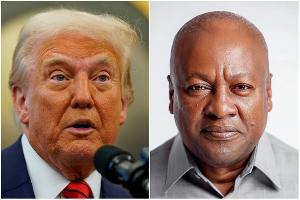In April 2025, the United States Department of State issued a Level 2 travel advisory for Ghana, urging American citizens to exercise increased caution while visiting the West African nation. This announcement was part of a broader travel advisory that included nine other countries, signaling heightened U.S. concern over several issues, particularly rising crime, civil unrest, health risks, and increasing threats against LGBTQ+ individuals in Ghana. Additionally, visa restrictions were introduced for individuals believed to be undermining Ghana’s democratic processes. Here’s a breakdown of the reasons behind the warning and what travelers need to know.
Crime and Civil Unrest in Ghana
The U.S. government cited violent crime as a key factor in its travel advisory. Incidents such as armed robbery, carjacking, and street mugging are prevalent, particularly at night and in urban centers like Accra and Kumasi. Criminals are known to operate in isolated areas and sometimes create roadblocks to stop vehicles and rob passengers. Markets, bus stations, and nightlife zones have also seen an increase in petty theft and scams targeting foreigners.
Some regions of Ghana are particularly prone to civil unrest, including the Bono East, Bono, Savannah, Northern, North East, and Upper East regions. These areas have experienced politically or ethnically motivated tensions and periodic violence. Travelers are advised to avoid demonstrations and large gatherings, which can escalate quickly and unexpectedly.
Growing Threats Against LGBTQ+ Individuals
The travel warning also highlights increased risks for LGBTQ+ travelers. Ghanaian law currently criminalizes same-sex sexual activity, and recent years have seen a surge in anti-LGBTQ+ rhetoric and violence. Members of the LGBTQ+ community have reported harassment, threats, physical assault, and even mob violence. U.S. officials advise LGBTQ+ individuals traveling to Ghana to exercise extreme caution and to remain aware of the legal and social landscape.
This concern is not new; it has been amplified in recent months by the introduction of proposed legislation and public campaigns targeting LGBTQ+ communities. The travel advisory underscores the importance of understanding local laws and customs, especially for vulnerable groups.
Read More: Free Education in Burkina Faso: A Transformative Policy Under President Ibrahim Traoré.
U.S. Visa Restrictions Over Democracy Concerns
In a move that preceded the April travel advisory, the U.S. State Department announced visa restrictions in late 2024 targeting individuals believed to be responsible for or complicit in undermining democratic processes in Ghana. These restrictions came ahead of Ghana’s national elections and were designed to promote free and fair electoral practices.
The restrictions are not aimed at the Ghanaian people or government as a whole but rather specific individuals—political actors, electoral officials, or private citizens—who are alleged to have engaged in voter intimidation, electoral fraud, or violence. This step reflects Washington’s broader policy of supporting democratic governance and political stability in the region.
Health and Safety Concerns for Travelers
Beyond political and social issues, health and infrastructure also factored into the travel warning. Ghana continues to grapple with outbreaks of infectious diseases such as malaria, typhoid, and cholera. The Centers for Disease Control and Prevention (CDC) recommends that travelers be fully vaccinated and take appropriate health precautions, including malaria prophylaxis and water sanitation measures.
Road safety is another major concern. Many roads, especially in rural areas, are poorly maintained, and local driving practices can be erratic. Traffic accidents are a leading cause of injury among visitors. Travelers are encouraged to use reputable transportation services and to avoid nighttime travel whenever possible.
Conclusion: Stay Informed and Travel Smart
Although Ghana is known for its hospitality, vibrant culture, and historical landmarks, the travel warning issued by the U.S. in April 2025 serves as a reminder of the evolving risks faced by visitors. Issues such as rising crime, civil unrest, health risks, and legal concerns for marginalized groups like LGBTQ+ individuals all contributed to the advisory.
Americans and other international travelers should remain alert, consult with local authorities or embassies when necessary, and adhere to travel guidelines provided by both the U.S. State Department and the CDC. Understanding the current landscape will not only ensure personal safety but also promote respectful and lawful travel within Ghana.

